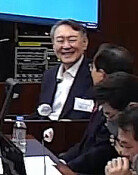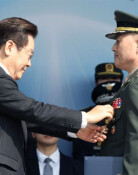Erroneous textbooks
The U.S. State Department has staff who research textbooks in other countries to better understand what people in those nations think. A countrys textbooks not only deliver knowledge to its people but also shape how its populace sees society. When religions had authority, the seven Chinese Classics of the Four Books and the Three Classics (四書三經), the Bible and the Quran played such a role. In todays secular countries, textbooks have taken over that function. Children tend to perceive what they learn from school textbooks as the undoubtable truth. Therefore, textbooks should be written with the utmost care.
Though an Indonesian tribe never adopted the Korean alphabet as its official writing system, five textbooks in Korean high schools say it did. The tribe did learn hangeul but did not adopt it. Except for a few indigeneous languages with their own characters, Indonesia bans the use of alphabets other than the Roman alphabet. The Korean textbook makers made a mistake because they did not confirm the news competitively covered by the Korean media to emphasize the excellence of the Korean alphabet.
A high school Korean textbook has a cartoon saying independent presidential candidate Ahn Cheol-soo forgot to tell his family after he joined the military and entered a barrack. The misunderstanding stemmed from what he said on a TV show in 2009. He said he seemed to have joined the Army without telling his family because he was too obsessed with developing computer virus vaccines until early in the morning of the day when he was supposed to enlist. His wife denied this, however, saying in an interview, I was so sad after sending him off on a train (heading for boot camp).
Korean textbooks for middle and high school are made by several publishers on an approval basis instead of the government alone, so they contain many figures and incidents of this era. Such books should attract student attention to give a stronger learning effect, but are prone to errors because of poor verification of facts. This is especially true for history textbooks. The makers of Korean history textbooks increased attention to modern history but decided to cut down a conservatives and liberals held heated debates over the matter. If a textbook covers the modern era, it should be more thorough about sources and verify facts to stay neutral.
Editorial Writer Song Pyeong-in (pisong@donga.com)




![지하철 타고 가는 북한산성…외국인도 반한 ‘K등산 맛집’[전승훈 기자의 아트로드]](https://dimg.donga.com/c/138/175/90/1/wps/NEWS/IMAGE/2026/01/10/133120824.1.jpg)


